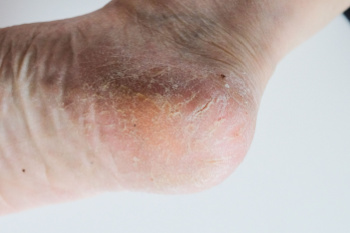
Cracked heels occur when the skin on the heels becomes dry and thick, leading to fissures or splits. This condition is often caused by prolonged standing, wearing open-backed shoes, or dry weather. Other contributing factors include obesity, which increases pressure on the heel pad, and skin conditions like eczema or psoriasis. While cracked heels may seem like just a cosmetic issue, they can become more serious if left untreated. Deep fissures can cause pain, bleeding, and increase the risk of infection, especially if dirt or bacteria enter the cracks. For individuals with diabetes or circulation problems, cracked heels can lead to complications, including ulcers. If you have cracked heels that become painful, or show signs of infection, it is suggested that you visit a podiatrist for treatment.
If the skin on your feet starts to crack, you may want to see a podiatrist to find treatment. If you have any concerns, contact Chuc Dang, DPM from California . Our doctor can provide the care you need to keep you pain-free and on your feet.
Cracked Heels
It is important to moisturize your cracked heels in order to prevent pain, bleeding, and infection. The reason cracked heels form is because the skin on the foot is too dry to support the immense pressure placed on them. When the foot expands, the dry skin on the foot begins to split.
Ways to Help Heal Them
- Invest in a good foot cream
- Try Using Petroleum Jelly
- Ease up on Soaps
- Drink Plenty of Water
Ways to Prevent Cracked Heels
- Moisturize After Showering
- Skip a Shower
- Keep Shower Water Lukewarm
- Don’t Scrub Your Feet
If you are unsure how to proceed in treating cracked heels, seek guidance from a podiatrist. Your doctor will help you with any questions or information you may need.
If you have any questions, please feel free to contact our office located in Westminster, CA . We offer the newest diagnostic and treatment technologies for all your foot care needs.